In 2009, the writer Stuart Evers posted his “50 best novels of the 2000s” on his blog. I wished I could have done the same, but I hadn’t kept track of my reading in enough detail.
Ten years on, it’s a different story: thanks to this blog, I have a record of what I read, so I decided to put something together. I’m not calling it a ‘best of’, or even a list of favourites – it’s not meant to be that kind of exercise. Instead, I’ve chosen 50 books that have inspired strong memories.
My guidelines are: novels and short story collections allowed. First published in English or English translation during the 2010s, and read by me in that time (so nothing I’ve read this year). One book per author, except in one instance where I couldn’t choose between two.
The plan is to post my list in weekly instalments every Sunday. Here are the first ten entries. It’s a coincidence – but quite appropriate – that the writer who inspired my list is the first to appear on it…
(Links are to my original reviews of the books.)
50. Ten Stories About Smoking by Stuart Evers (2011)

I’m a sucker for a nicely designed book, and this story collection came in a flip-top box made to look like an old-fashioned cigarette packet. I just had to find out what it was like. Happily, the stories were as good as the packaging. This was one of the key books that helped me develop a taste for strong metaphors in fiction, as smoking represents something slightly different in each story.
49. Never Any End to Paris by Enrique Vila-Matas, tr. Anne McLean (2011)
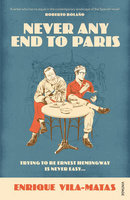
Enrique Vila-Matas was one of the names that kept coming up when I started paying more attention to translated fiction. I’d enjoyed Dublinesque previously, but this was the book that really clicked with me. Presented as a lecture about the author’s time in Paris where he tried to live like Hemingway, it illuminates the gap between an imagined place or experience, and the reality.
48. The Photographer by Meike Ziervogel (2017)
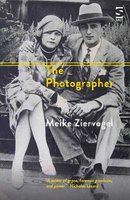
Meike Ziervogel is perhaps better known for founding Peirene Press, but she’s a fine writer as well. This is the tale of a German family broken by the Second World War then healed again, but the structure is what makes it really memorable to me. The Photographer is like a photo album, a series of snapshots, with some stories told in detail, others inferred, and some so private they’re not even put to paper.
47. Communion Town by Sam Thompson (2012)
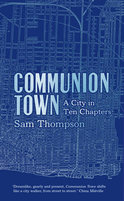
It was Nina Allan’s review at Strange Horizons that made me want to read this book. It appealed to the SF/fantasy reader in me, with its China Miéville vibe. Each chapter is in a different style, all set in a city that becomes a slightly different place each time.
46. Zone by Mathias Enard, tr. Charlotte Mandell (2010)
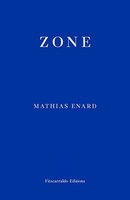
When I first read about the Open Letter edition of Zone on Steve Mitchelmore’s blog, it didn’t sound like a book for me: 500 pages, almost one sentence. A few years later, when I heard it would be Fitzcarraldo Editions’ launch title, I was more up for the challenge. In Zone, an ex-mercenary ruminates on the cycles of violence in Mediterranean history while riding a train. I can still remember the driving rhythms of that prose.
45. Coconut Unlimited by Nikesh Shukla (2010)
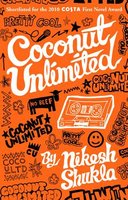
Nikesh Shukla (like Stuart Evers) was a writer I first came across on Twitter, and I ended up eagerly anticipating his first book. Just thinking about Coconut Unlimited makes me smile: it’s so funny and sharply observed. The only Asian boys in a private school try to form a hip-hop group. They feel caught between two cultures and seek refuge in a third. There are so many great lines, and that joyful/bittersweet ending.
44. Beside the Sea by Véronique Olmi, tr. Adriana Hunter (2010)
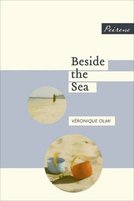
I was never averse to reading translated fiction, it’s just that I rarely did – and I didn’t even realise that until I stepped back and paid attention. This was one of the books that got me into reading translations: the first title from Peirene Press, a key small publisher. The monologue of a woman heading to the seaside with her son may seem ordinary at first, but it hides a harrowing tale beneath.
43. Follow Me to Ground by Sue Rainsford (2018)
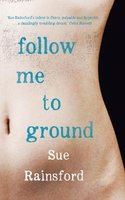
It’s rare that a book evokes a genuine sense of magic and strangeness for me, but this one did. It’s the story of Ada, a not-quite-human healer who becomes obsessed with one of the humans she treats. Sue Rainsford depicts just enough of Ada’s world to catch the imagination without actually defining it. The strangeness gnaws away at the reader, reflecting Ada’s obsession.
42. Girl Reading by Katie Ward (2011)
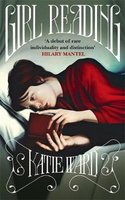
At the start of the decade, I wanted to see what new authors around my age were writing. That accounts for a fair number of books on this list, including Girl Reading. Each section of the novel concerns a different portrait of a girl or woman reading, ranging from the 14th century to the 21st. There’s subtle interplay between chapters, exploration of the different functions of portraits and literacy… It’s a memorable tapestry.
41. 70% Acrylic 30% Wool by Viola Di Grado, tr. Michael Reynolds (2012)
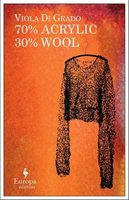
I remember reading Viola Di Grado and having the feeling that her writing could go anywhere as it revelled in expression. This is the story of a young Italian woman stuck in wintry Yorkshire who finds learning Chinese a possible source of freedom, as it gives her a different way to conceive the world. There is a real sense in this book of how language shapes subjective experience, which turned out to be something I really value in fiction.
18th May 2020 at 1:29 am
David, Thank you for this list. I’m ordering several of these and looking forward to the next list.
23rd May 2020 at 2:56 pm
Thanks for your comment, Terry — I hope you enjoy what you’ve ordered. Next instalment coming soon…
26th May 2020 at 4:53 pm
I thought Zone remarkable, it was my book of the year for the year it came out.
Beside the Sea is crushing. Brilliantly written but not sure I’d reread it.
Communion Town I’d somehow forgotten so I’ll take another look.
30th May 2020 at 12:44 pm
Hi Max. I think I’d like to re-read both Zone and Beside the Sea, to see what I’d think of them now. What chance I’ll get to re-read anything is another question, though…
I did revisit Communion Town a couple of years ago, though, when my book group chose it. It held up really well.